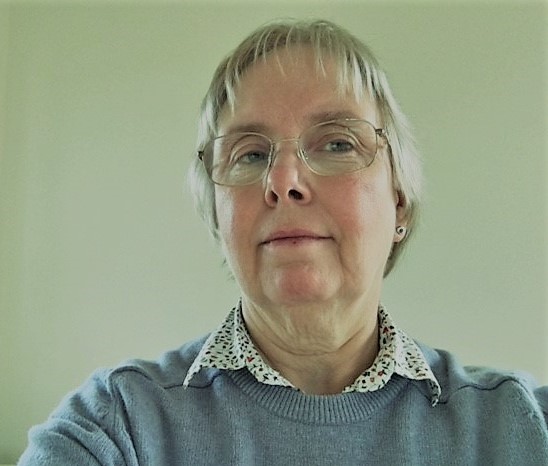Sue Lightman is a Professor of Ophthalmology and Consultant Ophthalmologist who has been undertaking medicolegal Expert Witness work for over 20 years. Here, she explains how she got involved in expert work, why it keeps her interested, and shares her advice for other medical professionals interested in getting into the Expert Witness world.
In order to be a medicolegal Expert Witness, you need to keep your licence to practice.
I used to be the Professor of Clinical Ophthalmology and Consultant Ophthalmologist at UCL/Moorfields Eye Hospital. I ran a very large clinical service seeing many patients with all types of eye problems and training junior ophthalmologists, along with a lot of education and research programs linked to my clinical work.
I now work as a Consultant Ophthalmologist in Orkney, travelling from where I live in the north of Scotland. I'm one of three or four ophthalmologists that go up to Orkney to provide the ophthalmic services up there, so it’s very different from the day job I did before! But it keeps me clinically on my toes and is very enjoyable.
I got into Expert Witness work after working as a specialist for a couple of cases.
I found the differences in the way lawyers and medics look at things very interesting. What seemed to me to be the important things weren't actually what the legal team were primarily concerned with.
I realised that I had enormous experience as a general ophthalmologist, with the very large clinical service I had run for over 30 years – as well as my time working in peripheral hospitals, outreach clinics, and on acute cases – so I felt I was in a good position to help as an Expert Witness.
 Expert Witness work is a very good way to keep yourself up to date.
Expert Witness work is a very good way to keep yourself up to date.
And importantly, I enjoy it! I feel it's important that patients – and doctors – are defended when they need to be. I do both Claimant and Defendant work and I particularly like working with NHS resolution – they’re a very nice group of lawyers to work with. Your report is to the Court so you say it as it is, whichever side has instructed you.
I don't get involved in medicolegal work in all areas of ophthalmology.
Given my length of time in clinical practice and the breadth of work that I did, I can manage a lot of different types of claims. Through the type of clinics I ran, I saw many complications from all types of surgery so my experience is useful here. But I don't do cerebral palsy work in children, because I don't have the facilities to examine children adequately anymore. I don’t do squint cases or cases related to corneal refractive surgery.
I write my Expert Report as if I’m going to have to defend it in court.
Lawyers interpret words in different ways to medics, so I’m extremely careful what I write. If you go to court, the only thing you're allowed is your served report. I put everything in it, including any literature I’m referencing. I often reference recognised guidelines because it shows it's not just my opinion, but it's the opinion of a recognised body of ophthalmologists.
I try to turn my Expert Reports around quickly.
I’m usually given two to three weeks, but I don't want to suddenly find myself up against a deadline. I like to know what the case is about, so that I can think about it. Thinking time is important.
I like to read the notes written at the time of the clinic, not just the letters.
That way, I can see what the medical professional actually wrote at the time. They might write something you might find important, but which didn’t get entered into the letter or formal document.
The cases that go to court are very memorable.
Most of what I do are civil cases, which mostly settle out of court. I have done some criminal cases, though. One that stands out was a manslaughter trial for a man who was driving, knocked a cyclist off his bike and killed him. The defendant knew he had poor vision in his left eye, where the cyclist was. But he tried to blame the optometrist for not warning him about a cataract in his right eye. In fact, though, his other eye was good enough to drive.
My role wasn’t to prove him innocent or guilty, but to show that he knew he had difficulty seeing cyclists on the left side. Whether they convicted him of manslaughter or not, the important thing was that he didn't drive again.
One of the main skills being an expert is translating your technical knowledge.
In one case where I went to Court, the ophthalmologist Expert Witness on the other side managed to confuse the jury. He gave evidence after me and tried to be more ‘detailed’. But actually, his details confused the whole picture, and I could see that the jury were just not taking the information in.
Generally, barristers have a very good grasp of the medical issues.
But a handful of times, I’ve been in a situation where I’ve had to clarify things, because I didn’t think that their understanding was the same as mine. Some issues can be quite complicated, and it's easy for barristers to go down the wrong path without realising. Luckily, that rarely happens.
When you’re being cross examined, the most important thing is to keep your cool and take your time.
Sometimes, the opposite side’s barristers can be quite aggressive. But you just have to keep your cool and not get upset by it, because if you get upset you can't think straight. You need to concentrate on the questions and make sure that you know what you're going to say before you start, because you don't want to contradict yourself.